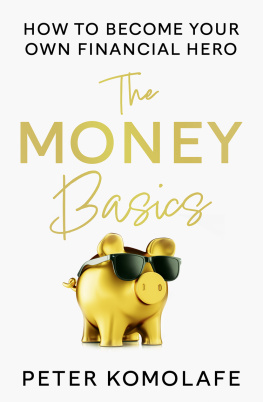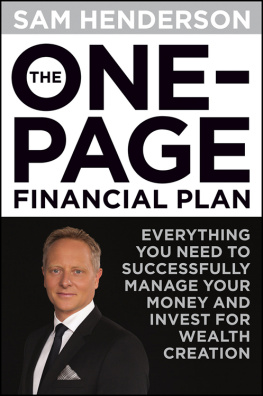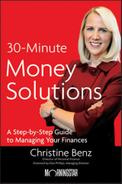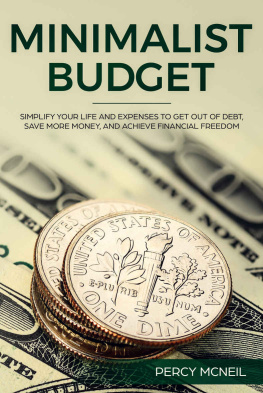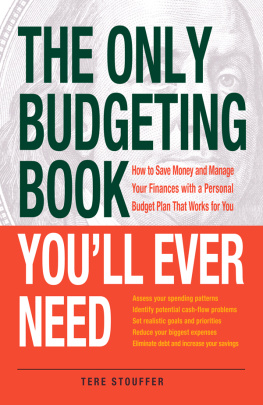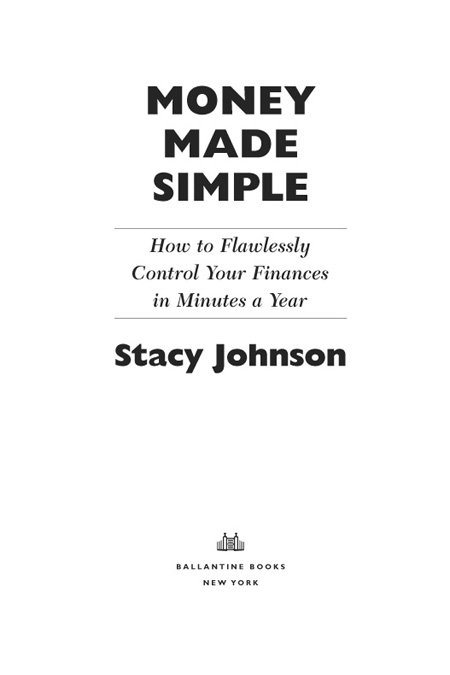ACKNOWLEDGMENTS
_____________________
W ithout the assistance of the following people, this book might not have been written. Or if it had been written, it might not have been published. Or if it had been written and published, it almost certainly wouldn't have been as coherent. So thanks to: my editor, Maureen O'Neal; and my agent, Liza Dawson. Rebecca Cohen of Vanguard and Steve Murphy of Morningstar helped with some facts.
The following is a list of people who contributed nothing whatsoever to this book. They're acknowledged here (in no particular order) because they were nice to me at one time or another, and I figure immortalizing them here is a cheap way to say thanks. Many of them are also the kind of people to whom this book is dedicated. Plus, who knows? Maybe they'll buy a copy simply to win drinks by betting friends that their names are in the Library of Congress. If you've been nice to me and I didn't mention you, cut me some slackthe '70s were a rough decade. Catch you next time.
James Withers, John and Leslie Guerin, Andrew Greene, Roy Brown, Anne Perry, Fred and Jayne Shaffer, Manuel Gadea, Chris Tindall, Martin Fleischhauer, Rob and Cheryl Coggins, Frauke and Olaf Haus, Monty Gary, Harold Wilke and Marilyn, Fabio and Kita, Chuck and Stephanie, Ann Alexander, Sue Davis, Angela Puckett, Sharon Barnes, Lee Karsh, Ron and Cheryl, Brad Davis, Jessica and Jamie, Emma Barnes, Lois and Dee Arnold, Corbett and Lucy Clark, Bob Stoner, Greg Wager, Christina Spillane, Paula and Rob Wethy, Joe and Christina Sabo, Mary Blair, Tracy Cohen, Helen Barnes, Alec Plosky, Wendy Hutsko, Allan and Jan, Deanna and Kim Onisko, Jeff and Gretchen, Frank and Dolly, Scott and Sabine, David Lotz, Mike Gianakas, Craig and Robin, Benny and Shira Levy, Dave and Terri, Bruce and Tonya, David and Kathy, Sandy Blevins, Wolfgang and Jennifer, Ed Messick, Frank and Anna, Ross and Marcie Simmons, Petey Mazara, Jan and Sally, Jean Landry, David and Sarah, John and Tracy, Karen Turner and son Jason, Jeff and Sonya, Joe and Shelly, Ralph and Rosie, Michael Leftwich, Robert Swain, Scott and Veronica, Shari Ford, Darlene Sanders, Marshall and Clara, Bill Sawyer, Jacques and Lise, Jeff and Danielle, Lucien Campolo, Marie Warfel, Mike Nunn, Rick and Katy, Bill and Marsha, Steffan, Albert and Cara, Adolpho and Paige, Little Alan, Big Alan, Pat and Sabrina, Max and Ali, Julian and Samantha, Luciana, Roberto, Carla, Janice Boyle, Steve and Julie Graham, Tom and Sandy, Michelle and Teresa, Bob and Gene, Norm and Betty Germani, Jeff and Heidi Glaza, Karen Emanuel and Jesse, Louise Mazara, Judy, Candace and Marty Bush, Daphne Lawson, Neal and Carrie, Kiki and Rick, Jennifer and Jose, Sara Forsgren, Fred Ertz, Ray Depa, and Marcy Richardson.
INTRODUCTION
_______________________
The entire essence of America is the hope
to first make moneythen make money
with moneythen make lots of money
with lots of money.
PAUL ERDMAN
A s a member of the media, I'm continually annoyed by words and phrases journalists often use. For example, consider the oft-used phrase rushed to a local hospital, as in the critically injured victims were rushed to a local hospital. Why is a reporter telling me that critically injured people were rushed to the hospital? Do ambulance drivers normally stop for coffee when transporting critically injured people? Do they sometimes go to nonlocal hospitals?
What about the word expert?
Turn on the news tonight, and odds are good you'll see some story with an on-camera quote from someone labeled on screen as an expert on this, that, or the other. For example, maybe you'll see a terrorism expert. But what makes this person a terrorism expert? Did he write a book on the subject? Was he a terrorist for twenty years? Is he one now? Until we know more, the title alone doesn't make it so, whether it's on TV or not.
All this is leading up to why I get to write personal finance books for Ballantine. The reason, of course, is because I'm a money expert.
But since this isn't the evening news, I hereby present the credentials that allow me to make that claim.
I became a CPA in 1981. I've also earned licenses for real estate, life insurance, stocks, commodities, options principal, and securities supervisor. I also have a motorcycle license, a fishing license, and I have a marriage license around here somewhere.
In terms of experience, I spent three years as an auditor (I slept through most of them) followed by eleven years as a stockbroker. (To this day, I still feel the compelling need to call strangers at dinnertime and try to sell them something.) For about the last twelve years, I've been self-employed as a TV news guy. I host an ongoing consumer/personal finance news series called Money Talks, currently airing on about ninety stations nationwide. So far, I've written and produced close to two thousand money-related news stories.
I don't know if these credentials qualify me as an expert, but hopefully they're enough to give you some level of confidence in what I'm about to tell you, which is how to manage your financial life in little chunks of timelike during the commercial breaks of your favorite showeven with zero financial education or experience.
It's understandable that you'd want to dispatch your financial chores with the greatest possible speed, since dealing with dough is right up there with art films and C-SPAN on the adrenaline scale. But speed isn't necessarily the most important thing you're about to learn.
If you're like most people, you already spend very little time managing your money. I read a survey a couple of years ago that said the average American worker spends less than ten minutes a year thinking about how to invest his 401(k) assets. And be honest: How much time do you really spend every year thinking about your insurance policies, your overall investment mix, or your estate plan? Most of us are already fast at financial chores because we ignore them entirely. We're like deer in the headlights. We don't know what we should be doing, so we freeze, stand there, and hope like hell we're not about to get run over.
When I used to practice pitching with my dad in the backyard, he'd always say, You've got to get good before you get fast. Great advice, Pop. Understanding what it is you're doing and why you're doing it is integral to doing it quickly. In fact, understanding what we're doing is what ultimately allows us to achieve speed. So what we're going to do together is first learn to throw strikes. Then we'll figure out how to throw them at ninety miles an hour.
This book will deliver what it promises: total money management skills in the fastest possible time, with the least possible effort, and with no advance knowledge required. Nonetheless, from this point forward, please don't believe catchy phrases that promise immediate gratification, because they're probably just eyewash designed to sell something. Statements like Wealth Without Risk! or Lose 30 Pounds in 30 Days! or Create a New Credit History! are nearly always more sizzle than steak. In fact, here's my first piece of advice: Don't ever believe anything that ends with an exclamation point! And the more explanation points you see, the less you should believe it!!!


